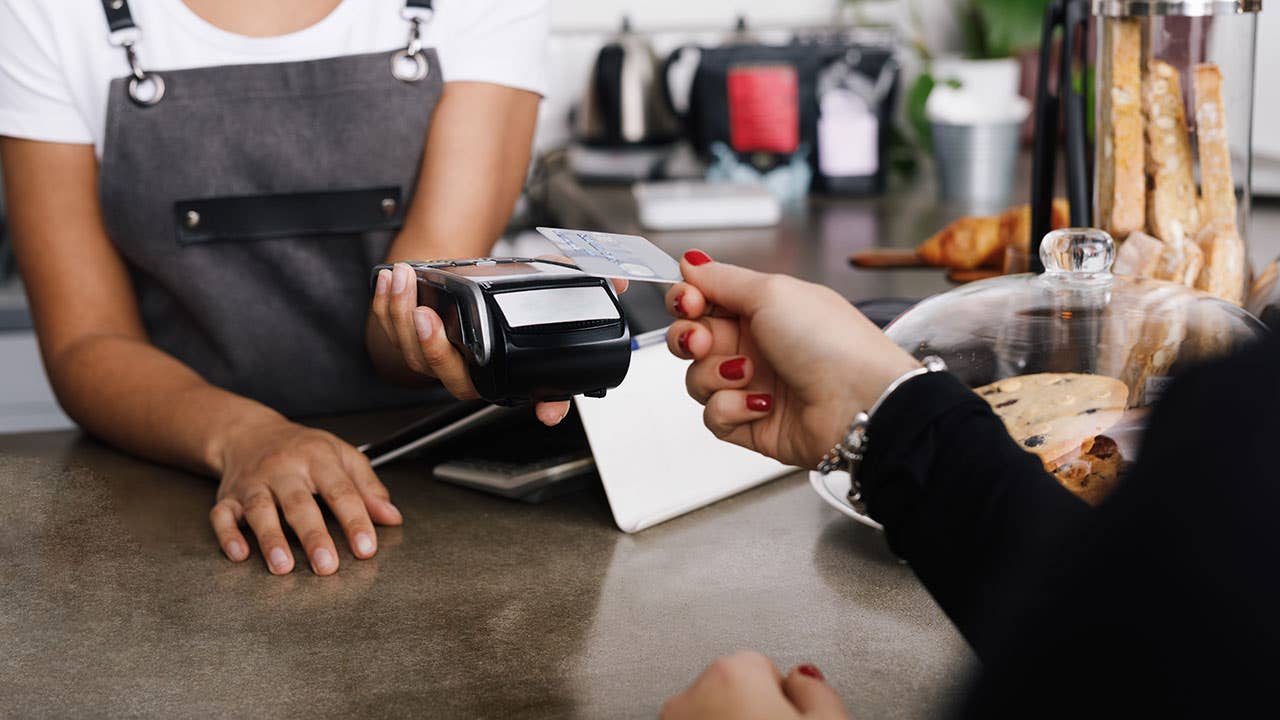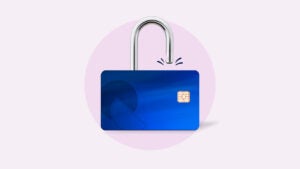Is no credit better than bad credit?

Key takeaways
- Having bad credit is typically worse than having no credit whatsoever.
- No credit means you don’t have enough credit-related activity to generate a credit score, but bad credit means there are blemishes on your credit report.
- Whether you have no credit or bad credit, there are ways to build your credit score, including making timely payments and becoming an authorized user.
Is no credit better than bad credit? Yes, technically, having no credit is better than having bad credit, though both can hold you back.
Bad credit shows potential lenders a negative track record of managing credit. Meanwhile, no credit means lenders can’t tell how you’ll handle repaying debts because you don’t have much experience. People with no credit history may have trouble getting approved for today’s best credit cards, for example, while people with bad credit may have trouble applying for credit, renting an apartment and more.
Luckily, there’s a way out. Whether you’re just getting started with credit or you’ve made a few financial mistakes in the past, the next steps are simple: Learn what it takes to build your credit score and start working your way toward the benefits of good credit.
“No credit history” and “No credit score” explained
If you checked your credit profile only to find “no credit score” or “no credit history,” then you fall into the category of unscorable or credit invisible. These terms might seem bad, but it’s not exactly negative. When you have no credit history, your credit score isn’t zero. Instead, it’s nonexistent.
There’s simply not enough information under your credit profile for the credit bureaus to assign a score. This can show up for a few reasons:
- There are no credit accounts for you reporting to the three major credit reporting agencies (Experian, Equifax and TransUnion).
- It’s been a while since you’ve actively used any credit.
- You recently opened your first credit account, but it hasn’t been open long enough to generate information for a score.
- You’re a new adult or recently immigrated to the country.
If that sounds like you, you’re not alone. A 2022 study by Experian, one of the three major credit bureaus, found that 49 million Americans are either credit invisible or unscorable. This data is based on the 2022 Financial Inclusion and Access to Credit Report and is Experian’s most recent available data.
Negative effects of having no credit
Lenders evaluate people based on how they’ve used credit in the past. An empty credit report with no evidence of a borrowing history signals to lenders that you’re inexperienced. That makes lenders nervous and increases the chances they will deny you for credit like a car loan, credit card or mortgage. Plus, even if issuers do approve you with no credit history, you’ll likely pay more to borrow than someone with good to excellent (670 to 800+) credit.
4 ways to build a credit score with no history
You can’t build a credit score until you start doing things that show up on a credit report. Here are four examples:
- Open a student credit card, secured credit card or other credit card for people with no credit history.
- Apply for and make timely payments on another kind of loan.
- Sign up for a service that reports your rent and bill payment history.
- Become an authorized user on a trusted family member’s credit card.
When lenders report these financial actions to the three major credit bureaus, it can help you start building a positive credit history. Many people start their credit history by getting a credit card for the first time. Others start with a car loan or a student loan, which may require a cosigner if you have no credit history.
You could also ask to be added as an authorized user to a trusted family member’s credit card if they have a history of responsible credit use. Most issuers report account activity on authorized users’ credit reports, which means you can build credit by having a parent or spouse’s established credit line reported on your report.
Alternatively, if you pay rent to a leasing company or make other bill payments that aren’t typically reported to your credit, you could make use of rent and bill reporting services, such as Experian Boost, which record your timely payments and report them to credit bureaus on your behalf, though their actual impact on your score may vary by credit bureau and credit scoring model.
What does it mean to have bad credit?
Under the FICO scoring model, people with poor credit have scores between 300 and 579. Get your score between 580 and 669, and you’ll move into the fair credit range; bump your score past 670, and you’ll achieve good credit.
The VantageScore model works similarly, although it’s not as widely used. People with very poor credit have a VantageScore between 300 to 499, people with poor credit have a score between 500 to 600, people with fair credit have scores between 601 to 660 and good credit scores start at 661.
Having a low credit score can result from several different types of negative marks on your credit report, such as:
- Late or missed payments
- Bankruptcy or failure to repay a debt
- Too many hard credit checks
- High credit utilization
Low credit is most likely a combination of several of these factors, as they all play into your score. To determine what’s impacting your credit, review your credit report with each credit bureau. If none of the above factors apply to you, it’s time to check for fraud or incorrect information on your report that is dragging down your score.
Negative effects of having bad credit
Financial institutions don’t like to lend to consumers with bad credit. When your credit history reflects credit mistakes you’ve made in the past, you’re viewed as a higher risk of not repaying what you’ve borrowed.
Therefore, it’s often difficult to get approved for new credit if you have a bad credit score, and credit issuers will assign higher interest rates to people with bad credit. Additionally, landlords, mortgage issuers, auto dealers and even potential employers are occasionally hesitant to work with people who have low credit scores.
4 ways to improve bad credit
Bad credit can limit your access to things you may want in the future, like a home mortgage or a car loan. To improve a damaged credit score, you’ll need to demonstrate a pattern of responsible financial habits.
Start by reviewing your credit report from each credit bureau to see exactly what’s affecting your score. If you spot any mistakes on your credit report, dispute any errors with the credit bureau or with the company reporting the false information. Next, it’s time to implement responsible credit habits.
- Make on-time payments every month.
- Lower your credit utilization ratio.
- Introduce new credit accounts like a credit card designed for people with bad credit.
- Minimize too many hard credit checks in a short time frame.
Just like someone building credit from scratch, you can also become an authorized user on a trusted person’s card or sign up for services that report your rent and utility payments to the bureaus.
In some cases, people receive bad credit scores after falling victim to identity theft or other types of fraud. Either way, you have to take responsibility for fixing it to avoid the impact of bad credit on your future plans.
Why having bad credit is worse than having no credit
If you have no credit, there’s very little or no evidence to indicate what kind of borrower you will be. On the other hand, if you have bad credit, lenders have concrete evidence (like late payments or bankruptcy) that you are a riskier borrower.
A bad credit score has many negative effects. Some lenders will deny your application for credit outright or, if you’re approved for a credit card or loan, charge you higher interest rates. Bad credit could even affect your ability to rent an apartment or qualify for a job.
Having no credit exposes you to many of the same negative effects, but a person with no credit can often build a good credit score quickly with solid financial behaviors. Since you don’t have to worry about contending with a credit report filled with derogatory marks, establishing good credit can be as simple as opening a starter credit card and proving to lenders that you can use credit responsibly.
The bottom line
Is no credit the same as bad credit? Not exactly. While no credit is better than bad credit, neither situation is good for you long-term. Knowing how to build your credit can help you overcome the obstacles of having no credit history or a low credit score.
Whether you’re applying for a starter credit card as a way to establish credit history or using a secured credit card to rebuild your credit, make sure you practice responsible credit habits. Make all of your payments on time, keep your balances low and avoid applying for too much new credit at once. Track your credit score as it grows and get ready to enjoy all the financial benefits that good credit can offer.
Why we ask for feedback Your feedback helps us improve our content and services. It takes less than a minute to complete.
Your responses are anonymous and will only be used for improving our website.







